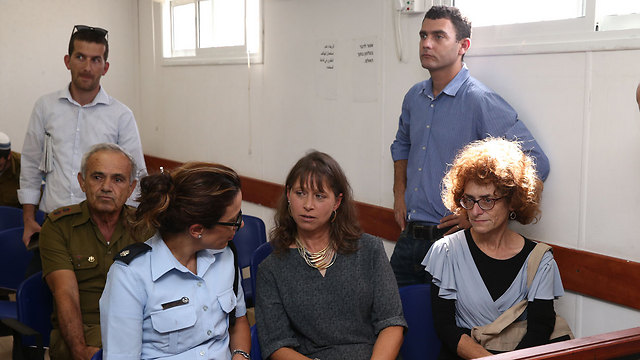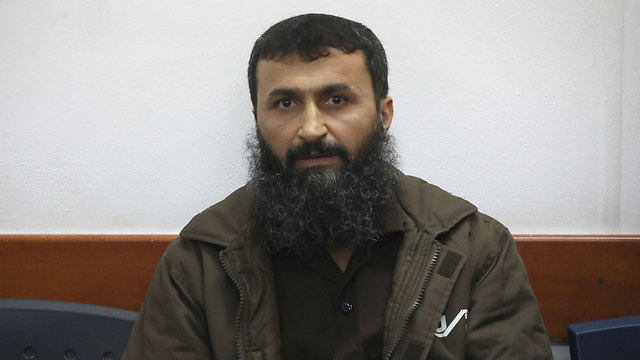
The Mizrahi family prior to the attack
A life sentence should be for life
Op-ed: We owe the victims of terrorist attacks and their families to make sure that their killers remain in prison until the last day of their sentence. In fact, we owe this to all those affected by gruesome murders cases.
Immediately after convicted terrorist Ziad Awad was sentenced to two life sentences on Monday for murdering Chief Superintendent Baruch Mizrahi on the eve of Passover in '14, Mizrahi's widow, Hadas, demanded that he be given the death sentence. Hadas, who was injured in the attack herself, explained that her main concern is that Awad will not end up serving life in prison, and that he would, once again, be released in a prisoner exchange swap.
Her fear is sadly based in reality, as Awad was one of the convicted terrorists to be released in the Gilad Shalit deal, at the tail end of '11, despite having 16 years left on his sentence. Awad, incidentally, is far from the only terrorist released in the Shalit deal who in the time since has returned to terrorism.
There are a lot of good reasons why Israel does not tend to implement the death sentence, despite the fact that from a purely legal standpoint, it is possible to do so in cases where Palestinian terrorists commit murder within the West Bank—as was the case with Awad's killing of Mizrahi.
The reasoning here is that the death penalty carries with it a string of consequences—publicly, socially and even diplomatically—that we as a nation and a society may not be willing to pay. Even morally, taking the life of a murderer is no simple matter. Our forefathers seemed to know this, as even in the time of the Sanhedrin—the highest judicial body during the Second Temple—they stopped sentencing people to death, including those found guilty of murder.
On the other hand, we cannot ignore the real problem here. We cannot honestly tell ourselves that yes, the murderer has been appropriately punished, when we know that too many times murderers are freed after unreasonably short periods of incarceration. We cannot stand by as widows and orphans yell for justice, and turn away from their pain.
There is, in fact, a solution to these problems, which, even if imperfect, should be considered: we could amend the law to allow judges, be they military or civilian, to limit upon sentencing any possible leniencies that could be granted to individuals found guilty of murder in the future. Judges should be allowed to determine that a murderer's sentence could not be shortened, making sure they will rot in prison until their dying day, even if another prisoner exchange deal comes up. Judges should also be given the option to set a minimum time to be served, or to decide that murderers will be not get a third of their sentences reduced, no matter what.
Granting judges these tools would hinder policy makers' abilities in certain regards, but it would assist them in others: it would, for instance, help them stand up to the extortionist and outlandish demands that led to the Shalit deal. Instead, they would make it clear that such decisions are not in their hands, since they really won't be.
Such rules should in fact be implemented in all cases involving an extremely gruesome murder. For this reason, it's no coincidence if the impending release of the child Oron Yarden's murderer comes to mind.














